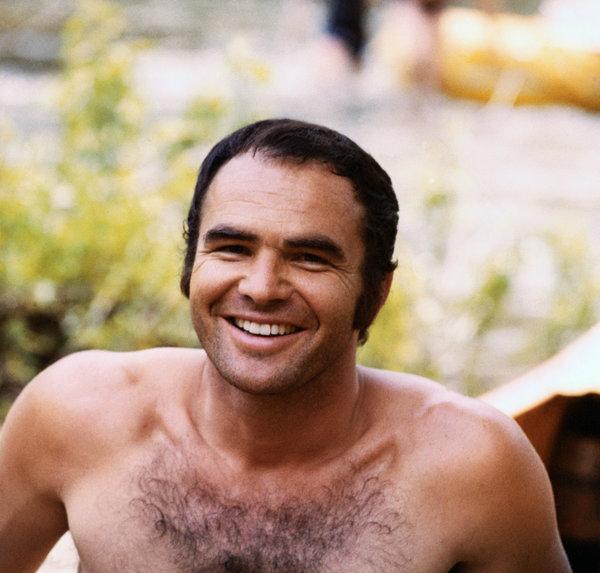The nude heard around the world.

That chest hair.CreditCreditBettmann/Getty Images
Back in the sexual Stone Age, it was assumed that straight men were so genetically overheated that Mother Nature hard-wired them to gawp at images of bare-naked ladies. Women, on the other hand, were her empathic creations: nurturing, maternal, their libidinal thermostats permanently set to low cool.
If a hunk of man-flesh suddenly came into view, a woman’s gaze was expected to rest some place well north of the belt buckle. What a woman was considered to want most from a man — in ancient times before Tinder and rampant sexting — was to gaze soulfully into his eyes.
Burt Reynolds changed all that with one hairy-chested centerfold. And while there is little doubt that the actor, who died Thursday at the age of 82, earned himself a fixed place in the entertainment firmament with a long career that — begun in television’s early days — brought him mainstream success as a half-Comanche blacksmith on the series “Gunsmoke” and later as the title character on the clunky police drama “Dan August”; acting cred for his breakout role in the 1972 film “Deliverance”; and an Oscar nomination for his turn in Paul Thomas Anderson’s 1997 “Boogie Nights,” it was with his 1972 striptease for Cosmopolitan that he affected true cultural change.
It seems unimaginable now that Reynolds was making a radical break with Hollywood taboos about male nudity, let alone full-frontal, by agreeing to appear in the altogether for a mainstream publication now that every actor from Jason Segel to Daniel Radcliffe has shown us his junk. Yet in consenting to the Cosmo editor Helen Gurley Brown’s proposition (she made it to him while he was sitting in for Johnny Carson as host of the “Tonight” show) that he become the first male centerfold, Reynolds was not only helping to propel us into a new era in women’s magazine publishing but also a refreshed understanding of what women desire.
Brown herself said so. “As the time, you know, men liked to look at women naked,’’ she once told James Landers, the author of a book on the first 100 years of Cosmopolitan magazine “Well, nobody talked about it, but women liked to look at men naked. I did.’’
Reynolds was not Brown’s first choice; Paul Newman had already turned her down. And what is interesting to contemplate is how things might have turned out had it been Newman who chose to present his undressed physique and not Reynolds — Newman’s lean boyish body a precursor of the glorified hairless male and Reynolds’s furry one a relaxed emblem of an era of key parties, swingers, and also the hirsute and mustachioed gay clone.
Three decades on, in 2002, the designer Tom Ford would make a knowing nod to that early Cosmo centerfold when creating a black and white Yves Saint Laurent fragrance advertising campaign that featured the martial arts champion Samuel de Cubber naked and ostentatiously unwaxed.
“I wanted to show a man who represents a natural and relaxed image of male beauty,” Mr. Ford said at the time. The lineage of that provocative pictorial can be traced directly to Burt Reynolds, forearm angled coyly over his genitals as he posed Odalisque-style atop a fur rug. So too, in a sense, can every self-conscious nude ever snapped in a bathroom mirror.
The ease men now feel about showing their all, and the expectation that women are empowered to have a good look at it, has a distinct point of origin and it is Burt Reynolds. “I didn’t know there was going to be a commotion about it,” the actor, as dryly humorous as ever, told the talk show host Steve Harvey in his final televised interview last March.
“It wasn’t a big deal to me,” Mr. Reynolds said. “I said, ‘I’ll do it, but I’ll have my hands in front of me. And I have very small hands, actually.”
Advertisement







